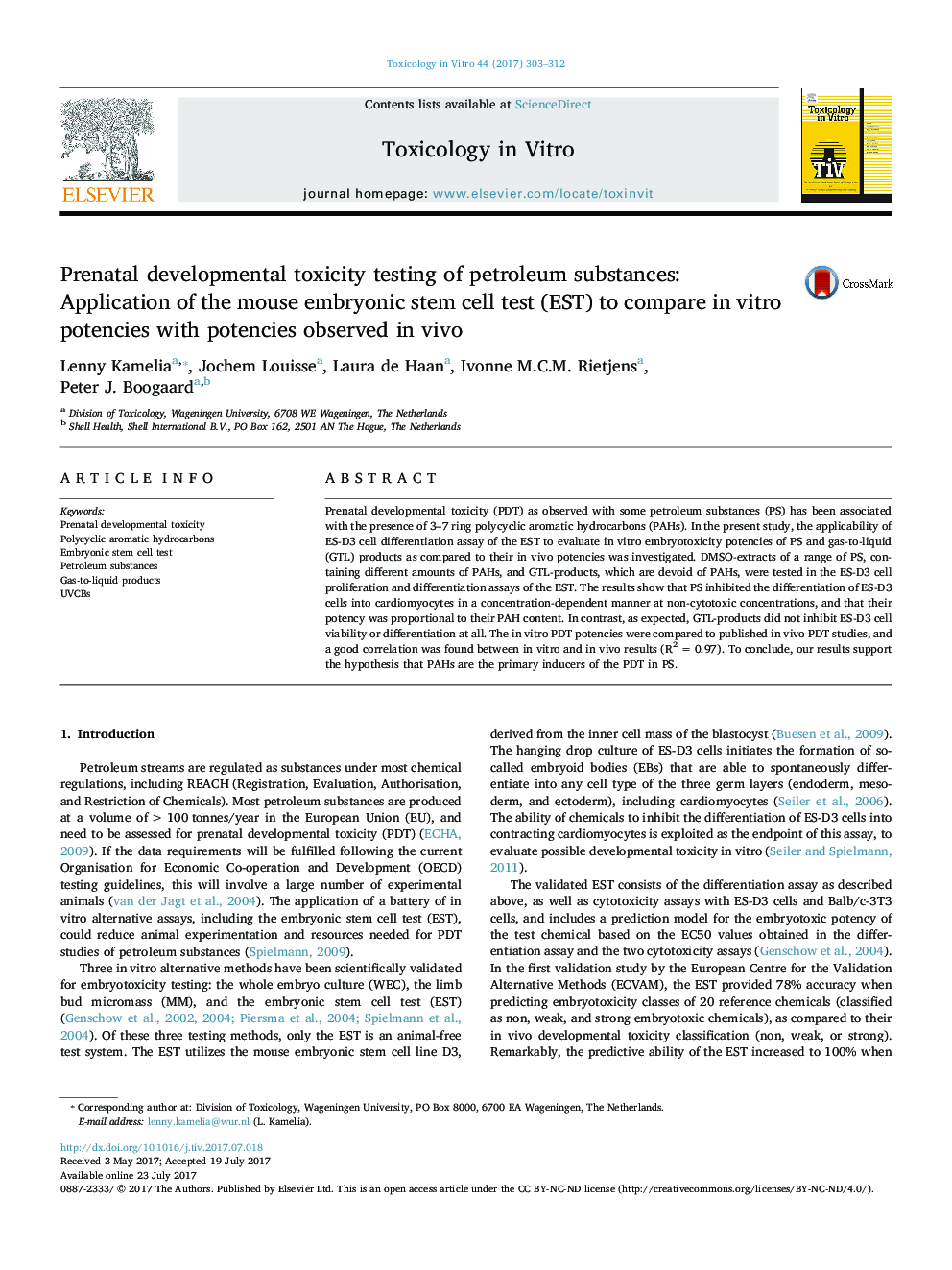| Article ID | Journal | Published Year | Pages | File Type |
|---|---|---|---|---|
| 5562537 | Toxicology in Vitro | 2017 | 10 Pages |
â¢This study evaluates the in vitro embryotoxicity potencies of petroleum substances using the embryonic stem cells test.â¢In vitro-in vivo embryotoxicity potencies were compared: a good correlation exists between in vitro and in vivo results.â¢Our findings support that 3-7 ring PAHs are the primary inducers of developmental toxicity in petroleum substances.â¢The embryonic stem cell test could also be applied for in vitro embryotoxicity testing of other UVCBs.
Prenatal developmental toxicity (PDT) as observed with some petroleum substances (PS) has been associated with the presence of 3-7 ring polycyclic aromatic hydrocarbons (PAHs). In the present study, the applicability of ES-D3 cell differentiation assay of the EST to evaluate in vitro embryotoxicity potencies of PS and gas-to-liquid (GTL) products as compared to their in vivo potencies was investigated. DMSO-extracts of a range of PS, containing different amounts of PAHs, and GTL-products, which are devoid of PAHs, were tested in the ES-D3 cell proliferation and differentiation assays of the EST. The results show that PS inhibited the differentiation of ES-D3 cells into cardiomyocytes in a concentration-dependent manner at non-cytotoxic concentrations, and that their potency was proportional to their PAH content. In contrast, as expected, GTL-products did not inhibit ES-D3 cell viability or differentiation at all. The in vitro PDT potencies were compared to published in vivo PDT studies, and a good correlation was found between in vitro and in vivo results (R2Â =Â 0.97). To conclude, our results support the hypothesis that PAHs are the primary inducers of the PDT in PS.
